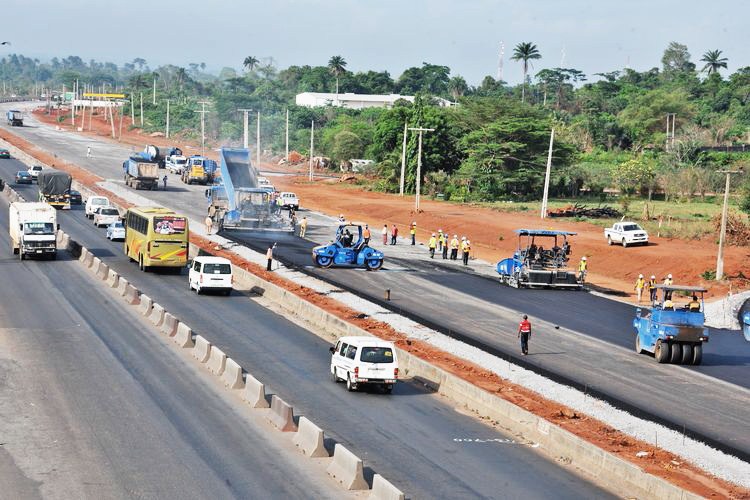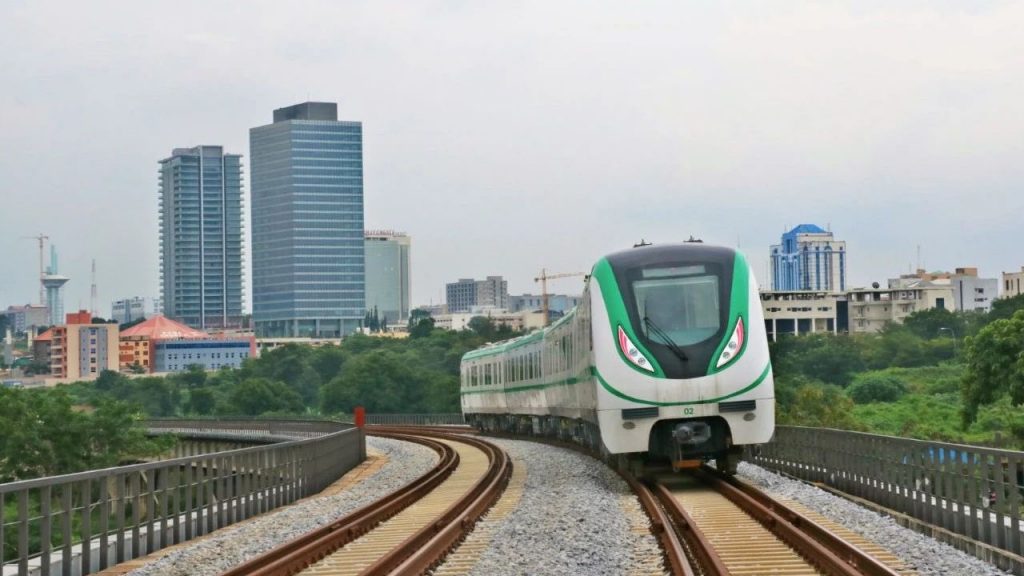To say that Nigeria is presently in a precarious situation is to state the obvious which is no longer news. What is however not known to many in Nigeria (both within and outside the government) are the practicable solutions to the well-known problems of the country. Only a few Nigerians have adequate and informed knowledge of what the solutions to the country’s problems are. Unfortunately, such Nigerians with the requisite knowledge of how to fix the country’s ills are practically despised by the government. This is one of the greatest problems of Nigeria. Most of the people in government who are given the responsibility of solving the country’s problems are bereft of the requisite knowledge of formulating the right policies that are capable of positively changing the tide of Nigeria’s situation.
In all humility, I make bold to say that I am one of the few Nigerians with the requisite knowledge on how to reposition the country and get her moving forward again. For this reason, I have decided to not keep quiet and hide my knowledge, at least as a demonstration of patriotism to the country and an expression of love for posterity. In this connection, 8I have disseminated my knowledge in my numerous books on nation building; it is now left for government officials to read them and glean wisdom to function effectively in their various domains of responsibility.
This article is a further demonstration of my nation building efforts, and captures my views on the pathway to sustainable economic growth.
Rapid Road Development

A functional transport system is very necessary for economic development of Nigeria, because people, goods and industrial machinery need to be moved from one location to another for production or marketing to take place. And out of all the systems of transportation, road transport is the commonest and closest to the people. Roads lead to human settlements, markets, farms, industrial estates, mining sites, conservation and animal parks, airports and seaports, etc.
Therefore, the most basic system of transportation in Nigeria and most parts of the world is road transportation, since it links everywhere on the land surface of the community and the country. This is unlike the air and water transportation that are limited in scope in countries with large landmass.
The truth is, Nigeria needs a rapid road development in order for the country to record rapid economic growth. The current road network in Nigeria is inadequate and in a poor condition with so many adverse effects on the people. More roads must be rapidly built in Nigeria; while the existing ones that are in poor condition should be reconstructed.
The next crucial issue I must discuss on rapid road development is how the rapid road development can be financed in Nigeria. Is it the government that will build and finance the road development? My answer is no! The Nigerian government has lost the financial capacity at the moment to construct roads, at least not at the rate or quantum that I am advocating. I am advocating for road constructions all over Nigeria at the same time. I mean all the strategic roads must be constructed immediately so that the Nigerian economy can wake up and start functioning well.
The government at all levels should allow private sector investors to construct roads on commercial basis as an investment and then recoup their investment through collection of tolls on the roads they construct from motorists. This is not a difficult task to do at all and the payment of tolls on roads will not hurt Nigerians in the manner that the current absence of roads is doing. For instance, if motorists can pay a total toll of One Thousand Naira Only over a journey of 300-500 Kilometers, that is better than travelling on dilapidated roads that damage their vehicles, waste their time during the journey, and also cause accidents.
In summary, I recommend that the government at all levels in Nigeria should open up the road constructions to the private sector investors, who have financial capacity to build the roads and manage them and then collect tolls on the roads to recoup their investment. This arrangement is the only realistic way at the moment in Nigeria to embark on massive construction of roads. It is my opinion that the government should limit itself to construction of roads within towns and cities of Nigeria; but inter-city roads and highways should be given out to private investors to construct and manage.
Rapid Development of Bridges in Nigeria
There is shortage of bridges at strategic locations in Nigeria. There are so many small, medium and large size rivers in Nigeria that cut-off communities and make road transportation across them difficult or impossible. These rivers require bridges. For instance, River Niger and River Benue at strategic locations require bridges across them. The government has identified the various locations that bridges are to be constructed on these rivers for decades, but fails to construct the bridges due to either lack of funds or inefficiency of the government. For instance, there are at least two locations to construct bridges across River Nigeria in the territory of Niger state. The locations are at Bida in Niger state to Patigi in Kwara state. Secondly, a bridge is required across River Niger at Baro to the other side at Eggan in Kwara State that also leads to Kogi State. However, the government has not been able to construct these strategic bridges across River Niger since independence. Due to the failure of the government to construct the bridges, the people of the communities’ construct ferries to help themselves. Unfortunately, ferry service cannot serve as a bridge. The bridges across River Niger at the moment are inadequate to engender effective road transportation by Nigerians. The implication of lack of bridges at the strategic locations is that people are forced to travel to long distances to use the available bridges across the River Niger and River Benue before they can cross to the other side, thereby wasting their precious time, which amounts to economic losses for the country. There are so many other smaller rivers that require bridges at strategic locations across them in Nigeria.
The government should bring in private sector investors to invest in the construction of bridges across strategic rivers in Nigeria. This will quickly impact on the economic activities of various communities and increase creation of employment for Nigerians.
The summary of my recommendation here is that government should make a policy for rapid building of bridges at strategic locations on rivers in Nigeria by private sector investors and the investors should collect tolls from users of the bridge they construct to recoup their investments. The private sector investors building bridges at strategic locations and tolling them for their economic benefit is certainly better than the bridges not being available for use, thus leaving Nigerians to suffer continually.
Construction of Railway Lines across Nigeria
There is need for rapid construction of railway lines across Nigeria to carry people and goods. Rail transport is very necessary for Nigeria. I therefore advocate a rapid development of railway lines across Nigeria. This should not be done by the government with Chinese or other loans because that piles up debts for the country. Here, too, the government should invite private sector investors to invest their own money to construct the railway lines and run them to recoup their investment from the fares paid by passengers and owners of goods freight through the trains. This is the only way to develop the railways rapidly in Nigeria.

Establishment of Large-Scale Farms
For decades in Nigeria, the government only makes empty noise about the need and importance of agriculture. However, in reality, the government practically invests nothing tangible to develop agriculture in Nigeria. The funds invested in agriculture largely go into funding the expenditure of the bureaucracy in the agricultural sector and for corruption. Nothing tangible goes to funding the real agricultural sector and this leaves us with the present outcome; which is poor agricultural development of Nigeria.
Agriculture in its real form is a veritable tool for the development of Nigeria. It is a sector that is very elastic to accommodate everyone that participates in it. The truth is, even if all Nigerians decide to go into the practice of agriculture, the space available in agriculture is enough to accommodate them. Food production, including cash crops production, can never be too much for the country, and if it is, there are other countries that are eagerly waiting to receive the supply of agricultural produce from Nigeria.
Now, what should the government do as regards rapid development of agriculture?

The answer is simple. The government should, again, encourage private sector investors, both international and local ones, to invest heavily in agriculture. In the 1980s and 1990s, there were large mechanized farms in Nigeria; however, unfortunately, they have all died. One rarely sees mechanized farms in Nigeria since the 1990s. This has led to massive importation of food into county to feed Nigerians.
The government must now make a practical and deliberate policy to revive the agricultural sector. The government should bring back large mechanized farms. The Nigerian government should invite foreign and local investors into the agricultural sector and reap the bountiful benefits from it.
Secondly, the government itself should establish special farms across Nigeria. First, government should import a large number of bulldozers and tractors into Nigeria and then clear large hectares of land in every local government in Nigeria. After clearing and preparing the land for cultivation, the government should hire private licensed land surveyors to plot and divide the large expanse of land into different sizes such as 3 acres, 4 acres, 6 acres and so on and then lease them out to Nigerians to farm with a good arrangement and agreement.
The government, where possible, should build residential houses around the farms for the farmers to reside in. Electricity, particularly of solar energy, should be provided with telecommunication facilities for the enjoyment of the farmers living there. If this policy is looked into and implemented, there will be no single Nigerian that should complain of being unemployed and jobless. This scheme is very easy to implement, especially if the government is committed to the development and welfare of the people. This will create a massive employment opportunity for millions of Nigerians instantly and they will be pulled out of poverty.
Investment in Establishing Skills Acquisition Centres in all Strategic Locations in Nigeria
The government must invest heavily in establishing Skills Acquisition and Industrial Centres in several locations to train Nigerians on various skills that they need to be equipped with making them ready for provision of services to people and in return, earn income. This is not difficult to do at all.
The government must create real enabling environment to equip Nigerians with skills and empowerment. Establishing Skills Acquisition and Industrial Centres is the least the government should do for unemployed and poor Nigerians. If the government supports them by giving them skills, they can go on in life to render skilled services that will earn them income. With the income, they can live good lives and gradually create wealth for themselves and the community.
In this regard, I recommend the establishment of large and functional Skills Acquisition and Industrial Training Centres in each local government council area in Nigeria. This will certainly bring immediate relief to Nigerians and the country will be the better for it.
Establishment of a Special Fund For Seed Capital for Unemployed Nigerians
The truth is that the Nigerian government at all the levels wastes a lot of funds under the guise of empowering the poor. This has been proved to be wrong ways of lifting people out of poverty. The worst of these phony economic programmes of government is the one known as the conditional cash transfers to the poorest of the poor. This is a useless programme. It is a waste of public funds without any practical benefit to the country, as there is nothing good to show for such expended funds in reality. It is foolishness to give a token of money to able-bodied Nigerians to feed on monthly basis without them being taught how to work by themselves to create wealth.
Funding and subsidizing consumption is not a way of lifting people out of poverty and hunger. Rather, it is by teaching them skills; how to use the skills to provide services and earning income is the ideal thing to do.
I therefore recommend that the government should establish a special fund that will provide seed capital (loans) for micro businesses to unemployed Nigerians. The procedure for accessing such seed capital fund should be very flexible and easy to access by the people. The policy for this should be well structured so that no one has the opportunity to compromise the process to steal the funds. If the government at all levels can institute seed capital ranging from N300,000.00 to N2,000,000.00, it will go a long way to create and fund many entrepreneurs in Nigeria, and within a space of two years, the landscape of development will be ushered for all to see.
Provision of Adequate Security in Nigeria

The government has a foremost duty to provide security to Nigerians. Every human activity rest on security. Without adequate security, no meaningful economic activity will ever take place. No sensible and real investor will invest in an atmosphere of anarchy, confusion and brigandage attacks. The level of insecurity in Nigeria for the past eight years is so high that the country could be said to be under the siege of armed bandits without the government being able to assert its authority and sovereignty over the vicious armed criminals. If the government must succeed to develop Nigeria, it must first restore security to Nigerians.
Conclusion
The government must act as the pathfinder to all Nigerians, showing them the way to follow. The government must lead the process and make the citizens to follow with verifiable benefits to their lives in the end.